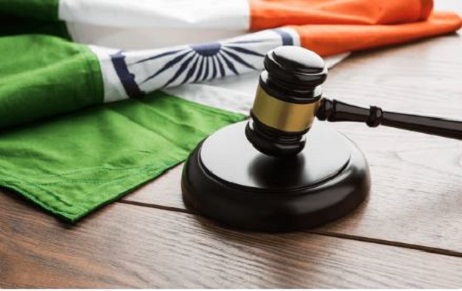Introduction Special Purpose Acquisition Companies (SPACs), also known as “blank-check companies”, are publicly listed traded…
Rights and Liabilities of Third Party in Motor Insurance
A. Introduction to Third Party Insurance terms
Insurance is a contract whereby one party agrees to compensate the loss or discharge the liability of another person. And in case of motor insurance in India, this also includes the loss suffered by third person. Motor insurance and all third-party rights and liabilities with respect to it are covered by Motor Vehicle Act 1988, in India. Part XI of the Acti.e. Insurance of motor vehicle against third party risks (from section 145 to 164), solely deals with provisions related to third party. Apart from the said Act, the Insurance Act, 1938 via its section 32-D creates obligation of insurer in respect of insurance business in third party risks of motor vehicles.
It is a mandate, provided by legislature under section 146, to not to use any vehicle in public place without any valid third-party insurance. As the following law suggests, that, drivers must carry at least a minimum of bodily injury liability and property damages liability coverage, causing third party insurance as a mandate for all motor vehicle. In Govindan v. New India Assurance Co. Lt[1],it was stated that third party insurance is compulsory under the law should not be overridden by any clause in the policy.Having said that, there are two types of policies in motor insurance sector. One is first party and other is known as third party. India has a mandate regarding the later one. And these third-party policies are beneficial to both insured person and third parties.
There are some specific requirements to be followed by these policies as per Indian law. An authorised insurer insures persons or class of persons against death or bodily injury to person (including owner of goods or his authorised representative) or to any passenger of public service vehicle and any damage to goods carried by or to any property of third-party vehicle cause by the use of vehicle in public place.[2] Such policies shall cover any liability in respect of any accident up to the limit of amount of liability incurred and a limit of rupees six thousand, in case of damage to any property of third party. Further requirements of the act are that a certificate of insurance must be granted to insured person. The certificate should be granted in prescribed forms and manner and containing the prescribed particulars of any condition subject to which the policy is issued and of any other prescribed matters. Moreover, if certificate of insurance has not been granted and a cover note of insurance policy has been provided to insured, it is a duty of insurer to grant such certificate within seven days of expiry of cover note.
Motor Vehicle Act 1988 allows transfer of certificate of insurance under section 157. When one party wishes to transfer the ownership of vehicle, he also has to transfer the insurance policy to new owner. The policy shall deem to be transferred to new owner from the date of its transfer. The procedure stated in the framework prescribes that transferee shall have to apply within fourteen days from date of transfer to make necessary changes with the concerned authority. In Karnataka SRTC v New India Assurance Company Ltd[3]., vehicle, in this case, was not completely transferred and was given on hire under lease agreement by registered owner. Court determined the question of insurance company’s liability and it was held that an agreement for lease on hire cannot be said to be an excluded contractual liability and thus, the insurer was held liable. In Rikhi Ram case[4], (decided under the ambit of Motor Vehicle Act, 1939), Court held that the liability of the insurer does not cease in so far as the third-party victims are concerned even if the transfer of the vehicle is affected without notice to the insurer.
Further, not withstanding the provisions of Workmen’s Compensation Act, 1923, no need of a policy to cover liability in respect of death or bodily injury to an employee. Adding to it, such employee should be engaged in driving the vehicle, engaged as a conductor or examiner of tickets of public service vehicle or if it is a goods carriage, being carried in the vehicle. Apart from these circumstances, policy shall not be required to cover any contractual liability.[5]Also, there is no necessity of insurance against third party risk, if appropriate government has exempted any vehicle of central government, state government, any local authority or of any state transport undertaking. A vehicle carrying or when it is meant to carry hazardous or dangerous goods, it shall be insured under Public Liability Insurance Act, 1991.
Further, insurance companies are entitled to drop a claim if the vehicle was used for hire or reward (when on date of accident it did not had permit for hire and reward), for organised racing and speed testing, where a vehicle is a transport vehicle and did not had permit to transport the goods on date of accident, without side-car being attached where the vehicle is a motor cycle.Insurance company, by an express clause, exclude by name, any person is disqualified for holding or obtaining licence or does not have licence, for the period of disqualification. Insurance Company can also exclude its liability for injury caused or contributed to by conditions of war, civil war, riot or civil commotion. And any policy is void on the ground that it was obtained by the non-disclosure of a material fact or by a representation of fact which was false in some material particular. In addition, it is highly required that insured person take reasonable steps to prevent the accidental event.In New India Assurance Co. Ltd. v. Yeo Beng Chow[6] it was observed that insurance company filed case against policy holder in Federal Court of Malaysia after discharging the liability. It was contended by insurers that insured person failed to take reasonable steps to safeguard the motor vehicle from loss and maintaining it in efficient manner. The privy council allowed the appeal which was from a judgment rendered by the Federal Court of Malaysia. His Lordship, Viscount Dilhorne in delivering the judgment of the Board said: Insurance companies can insert such conditions as they choose and if the conditions inserted are accepted by the insured, they are binding upon him. There is no obligation on an insurance company to relate the conditions to particular aspects of the policy.
B. Rights of Third Party
Right to receive information[7]– Insured or any person against whom a claim is made in relation to liabilities incurred to any other person by insured or, as the case may be, any other person shall not refuse to provide the information to person claiming. He will not refuse to state whether he is insured or was insured or would have been insured (if insurer had not avoided or cancelled the policy) with respect to the liability by any policy issued to him. He (Third Party) may also require the information to ascertain whether any rights transferred to and vested in him under section 150[8] or whether there exists any contract of insurance which directly or indirectly affects his rights.
Right to remain unaffected –This right arises in following cases. First, where any judgment or award has been passed against insured person and secondly, when policy unlawfully restricts the liability of insurer and thirdly, in case of settlement between insurer and insured person.
Motor Vehicle Act, 1988 prescribes an insurer to pay third party any amount not exceeding sum assured or any amount payable in respect of costs or any sum payable in respect of interest on that sum, in relation to a liability, if insurer has obtained any judgment or award in his favour against insured person. Thus, the claim of third party cannot be fallen down due to any judgment or award passed against insured person. The above right is not absolute and therefore, the said right cannot be exercised until or unless insured person was not notified by court regarding proceeding[9].
After grant of certificate of insurance, if it is found that the policy unlawfully restricts the liability clause of insurer, such clauses are of no effect[10]. Moreover, every settlement made in respect of claim will not be valid unless third party is a party to that settlement[11]. And death of an insured person shall not create a bar to any cause of action against his estate or against insurer with respect to any cause of action arising out of event mentioned under Chapter XI[12]. Also, if insurer asks insured person to repay the sum paid to third-party as amount of compensation, insured person has to do it for the reason that he had not all reasonable steps to safeguard occurrence of loss or damage. In this condition, third party will remain unaffected.
Transfer of right of insured, against insurer, to third party[13]–Generally, the liability raised against insurer by third party in relation to an event which is secured by way of insurance policy by insurer will be fulfilled by insurer. However, in case of insolvency of insured person, his rights against insurer under the policy shall be transferred to and vest in the third party to whom liability was so incurred. Any condition in insurance policy which directly or indirectly alters the right to transfer shall be of no effect. Upon transfer of rights, insurer will be in same position to fulfil the liability incurred to third party as he would have been to insured person. In case where the liability raised is more than the liability of insured person to third party, insured party has to pay the balance to third party.
Liability of Insurer towards Third Party– As per section 147(2) of Motor Vehicle Act, policies shall cover any liability in respect of any accident up to the limit of amount of liability incurred and a limit of rupees six thousand, in case of damage to any property of third party. In Bhoopathy v. Vijayalakshmi[14]the Madras High Court is of opinion that no bar is to be imposed as to when the liability of insurer ceases to exist i.e. it is void. It was the case of fracture of wrist, caused due to motor accident in which plaintiff was dashed against and injuries were sustained. Event took place on 4th December 1958, where car originally belonged to second defendant, which was sold to first defendant on 11 August 1958. The insurance policy of second defendant covered him till 12 September 1958. Thereupon the first defendant applies to another policy and starts paying premiums. The Court held that when the vehicle was transferred, insurance policy collapsed. And insurance company of second defendant was not liable for paying the damages. In National Insurance Co. Ltd. v. Swaran Singh[15], The Apex Court observed:
“The liability of insurer is statutory one. The liability of insurer to satisfy the decree passed in favour of third party is also statutory. The insurance company cannot shake off its liability to pay compensation only by saying that at the relevant point of time the vehicle was driven by a person having no licence.”
Hit and Run Motor Accident – Insurer, for the time being carrying business of general insurance in India, shall compensate for death or grievous hurt resulting from hit and run motor accidents. In case of death, a fixed sum of twenty-five thousand rupees and in case of grievous hurt, a fixed sum of twelve thousand and five hundred rupees[16]. But if the said compensation amount is been already paid to legal heirs or person injured under any other provision of act then such compensation amount will be refunded back to insurer[17].
No need to establish death or permanent disablement–The claimant is entitled to get compensation amount for death or permanent disablement due to accident as per second schedule, to person or his legal heirs and he is not required to plead or establish death or permanent disablement arisen due to any wrongful act or neglect or default.[18]
C. Duties of Third party
In claiming a sum from insurer in event of a road accident, a person (third party) has to face a complex claim process. The process starts with filing of a FIR and obtaining charge-sheet against the insured person or as the case may be against the offender. Next step is to approach Claims tribunal. The case will be evaluated on the basis of evidences by tribunal and third party is entitled to claim its amount of compensation after the court adjudicates the matter in his favour.[19]In addition, it is not always other parties who have all liabilities with respect to an event causing injury or death to person or property of third party.
Liability to payback – In occurrence of an event, causing death or injury to person or property of third party which is falling under chapter xi of the said Act, if insurer has paid the third-party excess amount than the amount in relation to which liability was incurred, the third-party is liable to payback the excess amount to insurer or, as the case may be, to insured person. Also, if the compensation amount is been already paid to legal heirs or person injured, such compensation amount will be refunded back to insurer.
Duty to provide information – As per Motor Vehicle Act, it is a duty of both insured and third party to furnish details of accident or event to concerned authority or person. In case where surveyor needs some information regarding the incident from third party, he cannot refuse to provide surveyor the needed information. As per section 160 of Motor Vehicle Act, 1988, there exist duty of third party to furnish particulars of vehicle involved in accident to concerned authority. As per section 134(b), if third party is a driver of vehicle by means of which any accident took place, it is his liability to report the incident to police station.
Duty to carry valid documents–It is a duty of third person in motor insurance contract to make compliance to all requirements of chapter xi of the act otherwise a company is in good position to drop his/her claim. Therefore, insurance companies are entitled to drop a claim if the vehicle was used for hire or reward (when on date of accident it did not had permit for hire and reward), for organised racing and speed testing, where a vehicle is a transport vehicle and did not had permit to transport the goods on date of accident, without side-car being attached where the vehicle is a motor cycle. Insurance company, by an express clause, exclude by name, any person is disqualified for holding or obtaining licence or does not have licence, for the period of disqualification. Insurance Company can also exclude its liability for injury caused or contributed to by conditions of war, civil war, riot or civil commotion.
In, Zamindar Motor Transport Co. P. Ltd. v. New India Assurance Co. &Ors[20], it was held that insurance company does not have any right to recover the amount of compensation from the appellant in respect of the compensation paid by it to the claimants. In this case, insurance company pleaded that the driver of the bus had produced a licence dated 30.04.1995 which was valid on the date of the accident than the driving licence purported to be seized by the police in the criminal case. The Appellant was satisfied about the genuineness of the licence and, therefore, it did not commit any breach of the condition of the policy under Section 149(2)(a)(ii) of the Motor Vehicles Act, 1988 (the Act).As per Section 14(2)(a)(ii) of the Act, a driving licence issued to drive a transport vehicle is effective for a period of three years and thus, the licence issued on 30.04.1995 would be valid till 29.04.1998. Issue involved in the case was; The Appellant Zamindar Motor Transport Company Private Limited impugns the award dated 22.01.2005 passed by the Motor Accident Claims Tribunal (the Tribunal) whereby a compensation of Rs. 6,24,000/- was awarded in favour of the Respondents. While granting the compensation, the Tribunal observed that since the driving licence held by Narender Kumar was fake, there was breach of the policy conditions and thus the Respondent i.e. New India Assurance Company Limited shall be entitled to recover the awarded compensation from the owner of the offending bus.
Duty to Compensate – In the event when claims are made, losses should be minimised. These includes segregation of damaged property from rest of the property, obtaining competitive quotes for the repairs/ replacements that may be required etc. If third party is found guilty of losses/ damages, then should be held responsible so that rights of recovery are protected.
About the Author: Vijay Chauhan a 4th year student at University of petroleum and energy studies and Co-author- Oorja Jain a 5th year student at Banasthali Vidhyapith Rajasthan. In case of any queries please contact/write back to us at aishani@khuranaandkhurana.com
References:
[1](1999) 3 SCC 754.
[2] Sub-section 1 of Section 147, Motor Vehicle Act, 1988
[3] (2016) 2 SCC 382
[4]AIR 2003 SC 1446
[5] See; proviso of sub-section of Section 147, Motor Vehicle Act, 1988.
[6] [1972] 1 M.L.J. 156.
[7] Section 151, Motor Vehicle Act, 1988.
[8] See, ‘Transfer of right of insured, against insurer, to third party’.
[9] Section 149 (1), Motor Vehicle Act, 1988.
[10] Section 149 (4), Motor Vehicle Act, 1988.
[11] Section 152, Motor Vehicle Act, 1988.
[12] Section 155, Motor Vehicle Act, 1988.
[13] Section 150, Motor Vehicle Act, 1988.
[14]I.L.R. (1966) 2 Mad. 65.
[15] 2004 AIR SCW 663
[16] Section 161, Motor vehicle Act, 1988.
[17] Section 162, Motor Vehicle Act, 1988.
[18] Section 163A, Motor Vehicle Act, 1988.
[19] See, https://economictimes.indiatimes.com/claiming-compensation-under-third-party-motor-insurance/tomorrowmakersshow/69426444.cms
[20] 2011 SCC OnLine Del 5451



